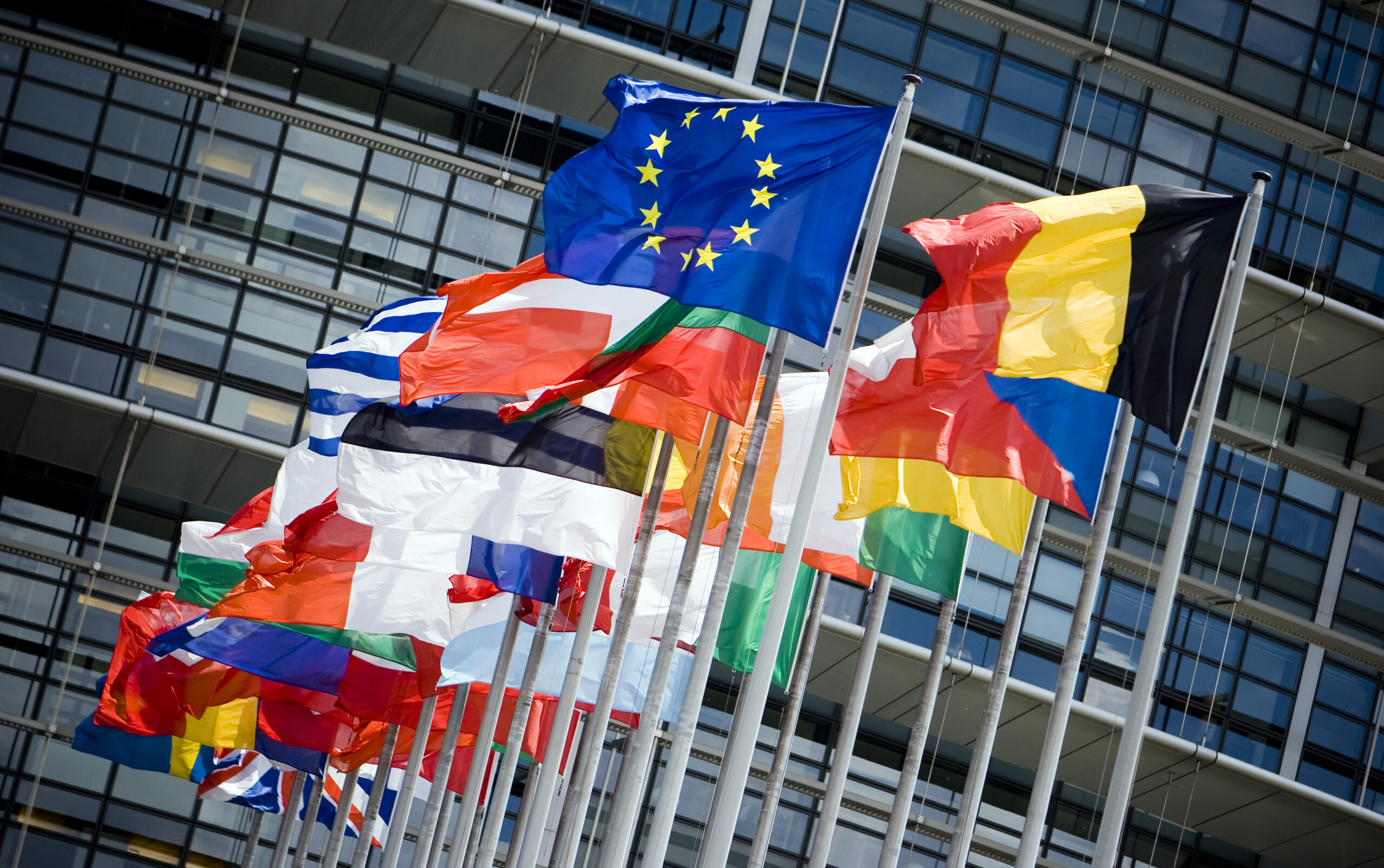Blog Archive

Robot Love / Robotgov
by Stijn van Deursen and Stefan Kulk

Robots are on the rise. They make life easier, they make economic processes more efficient, and they are even becoming objects of love and lust. At the same time, new ethical and legal questions arise. Should robots have rights? Can we send them to war? And, who is responsible for any ‘mistakes’ that robots make? They also make us question ourselves, and may teach us something about humanity. We can all agree that robots are not human. But what distinguishes us from ‘them’?
Read more
Appointment of EU agency directors
EU agencies’ number and powers have grown tremendously in the recent years. Despite the so-called Meroni ‘non-delegation’ doctrine, EU agencies perform a wide range of tasks. They can contribute to or pass (soft) rules of general applications and impose sanctions for violation of EU laws vis-à-vis private actors (Scholten and Luchtman 2017). The increase of powers and hence impact of EU agencies on society raises the urge for legitimising these institutions. One of the major ways to legitimize institutions is establishing proper governance structures and ensuring suitable top-level officials who manage agencies and bare responsibility for agencies’ performance. In this blog post, we offer a comprehensive evaluation of EU agency directors’ functions and appointment procedures and requirements. We show that the appointed directors fit the profiles of EU agencies that they head well, nevertheless we quest the necessity of the existing excessive variety of appointment procedures (12!), which in our view hinders legitimacy.
Read more
The European Production Order – Tackling the Problem of Enforcement Jurisdiction and Extraterritoriality in Cyberspace
 On April 17th, 2018, the European Commission proposed new legislation to facilitate and accelerate access to digital evidence across borders in criminal investigations. The proposal aims at providing enforcement authorities with new tools for cross-border investigations in the digital era. European Production and Preservation Orders (the Orders) would allow law-enforcement authorities of a Member State to compel service providers – both domestic and foreign – offering services in the European Union to disclose or preserve user data, regardless of the data’s location. With this proposal, the European Commission moves away from territoriality as the determinative factor for enforcement jurisdiction in cyberspace. Thereby it could possibly set an international precedent to modernize international law in the area of transborder access to e-evidence.
On April 17th, 2018, the European Commission proposed new legislation to facilitate and accelerate access to digital evidence across borders in criminal investigations. The proposal aims at providing enforcement authorities with new tools for cross-border investigations in the digital era. European Production and Preservation Orders (the Orders) would allow law-enforcement authorities of a Member State to compel service providers – both domestic and foreign – offering services in the European Union to disclose or preserve user data, regardless of the data’s location. With this proposal, the European Commission moves away from territoriality as the determinative factor for enforcement jurisdiction in cyberspace. Thereby it could possibly set an international precedent to modernize international law in the area of transborder access to e-evidence.

Legal Status of Robots: The RENFORCE/UGlobe Seminar and Why I Decided to Sign the Open Letter

Photo credits: iStock/Global_PhonlamaiPhoto
Should a robot enjoy any legal status independent of its human creators? If so, what kind of legal status would that be? Should the robot enjoy its/her/his “rights”? One’s answers to these futuristic questions might in part depend on whether one’s image of autonomous robots comes from the film Bicentennial Man (1999) based on Isaac Asimov’s novel or a more recent movie Ex Machina (2014). In the film version of Bicentennial Man, a highly autonomous robot played by Robin Williams exhibits humorous, friendly, and warm-hearted characteristics that co-exist with human communities. By contrast, in Ex Machina, a beautiful human-looking robot ended up deceiving a man and achieving freedom by taking advantage of the trust that the man developed towards the robot. While we cannot tell if such a self-governing robotic machine could ever be built, these two movies depict diametrically opposed scenarios that robots can have both beneficial and disturbing consequences to human beings.

Cambridge Analytica and Facebook Fallout: The Renforce/UGlobe Seminar
 On 11 April 2018, Facebook founder and CEO Mark Zuckerberg appeared at the US congressional hearings. At the heart of the testimony was the Cambridge Analytica fallout on the misuse of Facebook users’ data, which continues to reveal the vulnerabilities of social media companies and their impact on politics. The business model of social media companies is based on the sale of advertisements and the provision of apps which allow the social media platforms to make the most of users’ data. Their businesses’ unique strength resides in the “targeted advertising” of potential consumers — and voters. While Facebook and other similar social media generate an enormous benefit of sharing information, the companies’ reliance on users’ data triggers an unprecedented risk of information misuse, not only in a commercial sense, but also for political campaigns.
On 11 April 2018, Facebook founder and CEO Mark Zuckerberg appeared at the US congressional hearings. At the heart of the testimony was the Cambridge Analytica fallout on the misuse of Facebook users’ data, which continues to reveal the vulnerabilities of social media companies and their impact on politics. The business model of social media companies is based on the sale of advertisements and the provision of apps which allow the social media platforms to make the most of users’ data. Their businesses’ unique strength resides in the “targeted advertising” of potential consumers — and voters. While Facebook and other similar social media generate an enormous benefit of sharing information, the companies’ reliance on users’ data triggers an unprecedented risk of information misuse, not only in a commercial sense, but also for political campaigns.

Disrupting Technologies – A UGlobe Dialogue on Bulk Interception of Communications

Photo credits: iStock/Global_PhonlamaiPhoto
The UGlobe Dialogue Series “Disrupting Technologies?” hosted its first event on 15 March 2018, in the week before the Referendum on a new Dutch Law on the Intelligence and Security Services (the Wet op de inlichtingen- en veiligheidsdiensten, Wiv). This new law would extend the possibilities of secret services to monitor online behavior. Technology has changed since the usage of fixed telephony and dialup internet-access in the 1990s to the widespread use of smartphones, 4G and Wi-Fi-hotspots in 2018. So changes in the law regulating the intelligence services are necessary, and in view of the upcoming referendum it is necessary to engage in a debate on the new competences regarding these new technologies and the framework of supervision of these intelligence and security services.
Read more
Rotten fisheries: EU Advocate-General finds EU-Morocco Fisheries Agreement incompatible with international law

Credit: Katarina Dzurekova (CC BY)
The validity and scope of EU-Morocco trade agreements with respect to Western Sahara – a territory occupied by Morocco – has kept the Court of the Justice of the EU (CJEU) rather busy lately. In 2016, in a case brought by the Front Polisario, a movement fighting for the national liberation of the people of Western Sahara (the Sahrawi), the CJEU ruled that the territorial scope of the EU-Morocco Liberalization Agreement, which liberalizes trade in mainly agricultural products, did not extend to Western Sahara (see for a comment on this blog here, and for other comments here, here and here). Currently, a request for a preliminary ruling, referred by a UK court, concerning the validity of the EU-Morocco Fisheries Partnership Agreement is pending before the CJEU. This Agreement gives EU vessels access to fisheries in Moroccan fishing zones, in return for which the EU provides Morocco with financial contributions. On its face, this Agreement appears to apply not only to the waters off the coast of Morocco proper, but also those off the coast of Western Sahara. The case raises issues of self-determination of the Sahrawi in respect of the exploitation of ‘their’ natural resources, and the role of the EU in this respect. In January 2018, Advocate-General (A-G) Wathelet of the CJEU delivered his opinion in the case, proposing that the Fisheries Agreement should be considered invalid on the ground that it violates the right to self-determination of the Sahrawi people. This post commends the opinion for its detailed, although not always accurate, engagement with international law, and highlights the political salience of the case.
Read more
‘De platformeconomie kan (nog) zonder algoritmewaakhond’
Prof. Anna Gerbrandy schreef voor NRC een column over algoritmes en de noodzaak een nieuwe toezichthouder op te richten. De column is hier te vinden.
Read more
The external effects of the EU’s regulation of sulfur dioxide (SOx) emissions
 On 10 November 2017, I had the honor to be the sole opponent for the (successful) public defense of Philip Linné’s doctoral thesis on ‘Regulating vessel-source air pollution: standard-setting in the regulation of SOx emissions’, at Gothenburg University (Sweden). The thesis concerns the regulatory response, at different scales, including notably the EU scale, to tackle the environmental and human health impacts caused by sulfur oxide (SOx) emissions from the exhausts of seagoing ships. In this post, I reflect on the international legality and especially the external effects of relevant ‘unilateral’ EU action to tackle SOx emissions, i.e., action that goes beyond what is required by international law. Building on, but also adding to Philip Linné’s insights, I argue that by taking unilateral action, the EU has accelerated the calendar for strengthening global environmental standards in respect of SOx emissions.
On 10 November 2017, I had the honor to be the sole opponent for the (successful) public defense of Philip Linné’s doctoral thesis on ‘Regulating vessel-source air pollution: standard-setting in the regulation of SOx emissions’, at Gothenburg University (Sweden). The thesis concerns the regulatory response, at different scales, including notably the EU scale, to tackle the environmental and human health impacts caused by sulfur oxide (SOx) emissions from the exhausts of seagoing ships. In this post, I reflect on the international legality and especially the external effects of relevant ‘unilateral’ EU action to tackle SOx emissions, i.e., action that goes beyond what is required by international law. Building on, but also adding to Philip Linné’s insights, I argue that by taking unilateral action, the EU has accelerated the calendar for strengthening global environmental standards in respect of SOx emissions.

‘Regeerakkoord vergeet EU bij voorstellen mededingingsrecht’
Prof. Anna Gerbrandy schreef voor NRC een column over het mededingingsrecht en het regeerakkoord:
Read moreDe nieuwe regering wil meer aandacht voor niet-economische belangen in het mededingingsrecht, zo blijkt uit het regeerakkoord. Ze houdt echter weinig rekening met het EU-mededingingsrecht. Ten eerste wil de nieuwe regering dat het mededingingsrecht aandacht heeft voor de ‘machtsbalans’ in de eerstelijnszorg. Zij stelt voor “dat het mededingingstoezicht daar rekening mee houdt” wanneer “samenwerking in het belang van patiënten gefrustreerd wordt door (toepassing) van mededingingsregels”. Dan “is aanpassing van (de toepassing van) deze regels aangewezen”. Ook in de land- en tuinbouwsector moet het mededingingsrecht tegenwicht bieden aan “ongelijke machtsverhoudingen”. Daarom wordt “de mededingingswet (…) aangepast” en “samenwerking (…) expliciet toegestaan”. Verder moet het mededingingsrecht in algemene zin meer ruimte geven aan gezamenlijke duurzaamheidsinitiatieven van ondernemingen: “We onderzoeken of en hoe de mededingingswetgeving kan worden aangepast als deze samenwerking met het oog op duurzaamheid, tussen bedrijven en in ketens, in de weg staat.”

